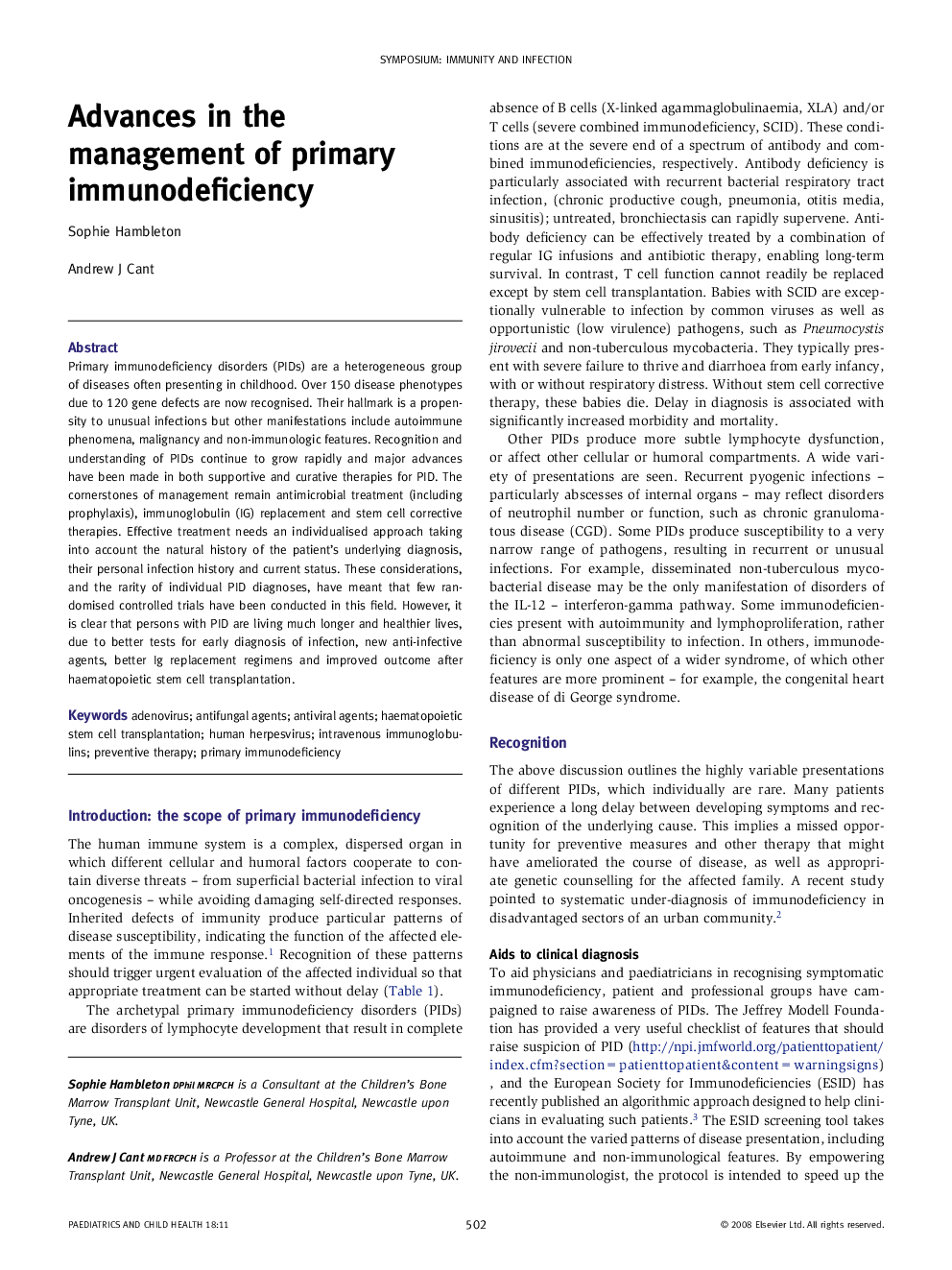| Article ID | Journal | Published Year | Pages | File Type |
|---|---|---|---|---|
| 4172751 | Paediatrics and Child Health | 2008 | 6 Pages |
Abstract
Primary immunodeficiency disorders (PIDs) are a heterogeneous group of diseases often presenting in childhood. Over 150 disease phenotypes due to 120 gene defects are now recognised. Their hallmark is a propensity to unusual infections but other manifestations include autoimmune phenomena, malignancy and non-immunologic features. Recognition and understanding of PIDs continue to grow rapidly and major advances have been made in both supportive and curative therapies for PID. The cornerstones of management remain antimicrobial treatment (including prophylaxis), immunoglobulin (IG) replacement and stem cell corrective therapies. Effective treatment needs an individualised approach taking into account the natural history of the patient's underlying diagnosis, their personal infection history and current status. These considerations, and the rarity of individual PID diagnoses, have meant that few randomised controlled trials have been conducted in this field. However, it is clear that persons with PID are living much longer and healthier lives, due to better tests for early diagnosis of infection, new anti-infective agents, better Ig replacement regimens and improved outcome after haematopoietic stem cell transplantation.
Keywords
Related Topics
Health Sciences
Medicine and Dentistry
Perinatology, Pediatrics and Child Health
Authors
Sophie Hambleton, Andrew J. Cant,
